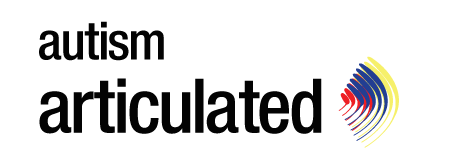Meet Dr. Valerie Gaus
/Dr. Valerie Gaus is a psychologist who promotes mental health awareness for adults, particularly those with autism spectrum disorders. She was recently cited in an Atlantic article about "The Hidden Link Between Autism and Addiction" so we reached out to learn more about her work promoting good mental health and healthy habits for adults on the spectrum.
Tell us about yourself.
I am a psychologist who has been practicing for over 20 years in private practice. I serve only adults, and focus a lot on working with people with autism spectrum disorders and other developmental disabilities. I live and work on Long Island, New York, while also holding a few office hours each month at Spectrum Services in Manhattan. I love animals and my pet dog and cats are regular visitors during my office hours. I also very much enjoy gardening and traveling.
What led to your career as a psychotherapist?
I was interested in psychology since I was an undergraduate. I was drawn to the scientific aspects of the field. I liked the idea that we can use scientific methodology to try and understand more about human behavior. I had a wonderful mentor who encouraged me to pursue a Ph.D. My doctoral training prepared me to do research and also clinical work. That is where I learned about behavioral and cognitive behavioral therapy; evidence-based approaches to help people change their behavior and improve mental health. While I had very little exposure to autism during those years, I did start gravitating toward working with adults in general. Only later in my career would I begin to apply those approaches to adults on the spectrum.
What approaches or best practices do you embrace while working with clients on the autism spectrum?
I believe that adults on the spectrum should have access to the latest evidence-based approaches to address problems, such as anxiety and depression, and to maintain quality of life and good mental health. However, finding a good evidence base is difficult because there have not been many outcome studies focusing on adults on the spectrum, especially older adults. But the literature on youth with ASD, combined with the literature on neurotypical adults with anxiety and depression, leads me to conclude that cognitive-behavioral therapy (CBT) is the approach with the highest likelihood of success. A positive psychology framework is compatible with CBT and fits well with my philosophy about resiliency and autism. This means that I look for the traits and behaviors in my clients that have allowed them to survive unbelievable adverse circumstances and to build on those to help them achieve their goals.
As written in The Atlantic, "Until recently, researchers held that addiction among people with autism is rare." In your experience as a psychotherapist, what links have you found between individuals on the autism spectrum and addictions to drugs and alcohol?
The overuse of alcohol or other substances is at least as common if not a little more so in the adult ASD population as compared to neurotypical individuals. Alcohol, marijuana and opiates can be attractive to some people on the spectrum, initially because of the anxiety reduction users can experience. Because living on the spectrum carries inordinate amounts of daily stress, a person with very few adaptive coping strategies will find relief in the use of substances. However, if alternative coping strategies are not developed, substance use can quickly become excessive and then interferes with important life functions. This has obvious damaging consequences.
In 2011, you published "Living Well on the Spectrum How to Use Your Strengths to Meet the Challenges of Asperger Syndrome/High-Functioning Autism?" What inspired you to create this great resource for the autism community?
Soon after my first book was published, which was a CBT handbook written for professionals working with adult Asperger’s, my editor suggested I create a manual that would be directed more toward individuals on the spectrum. It appealed to me to write TO adults on the spectrum instead of ABOUT them. At the time there were no books that did that, so I put together all of the ideas from the work I was doing with my patients and created a workbook for them.
What advice do you have for individuals on the autism spectrum as they navigate the personal and professional challenges of adulthood?
In short, “know thyself”. There is power in understanding one’s own strengths AND limitations. By capitalizing on strengths while simultaneously accommodating or sidestepping limitations, meaningful life goals can be pursued.
Reflect on your personal values and be sure that your goals and plans are consistent with them and not set by someone else’s agenda. Even the most well-meaning people in your life may not know what is most profoundly important to you.
This does not mean they cannot help you and that you will never ask for help. However, the direction of your life can be best determined by you. You are the captain, and the others in your life are your team members. Sounds a little corny, I know, but your life satisfaction will be higher if you follow that model.




